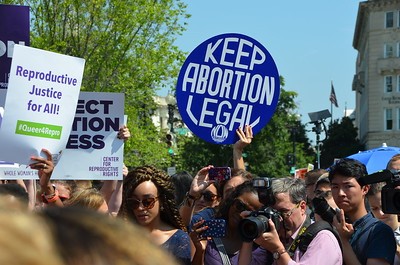
Frustrated young women — and men — determined not to get pregnant or to father children are obtaining "permanent contraception" to dodge increasing restrictions on abortion, new research indicates.
Rates of young people seeking permanent contraception spiked after the Supreme Court overturned Roe v. Wade in 2022, according to the findings published this week in the JAMA Health Forum.
Researchers from the University of Pittsburgh and Boston University tracked increased demand for vasectomies and tubal ligations among those aged 18-to-30 visitinghealth facilities for the Dobbs decision ending federal abortion rights.
The number of tubal ligations doubled for women. Vasectomies also increased for men, but at a lower rate, according to thge research.
Researchers discovered that there were approximately 58 more tubal ligations per each 100,000 clinic outpatient visits after the Dobbs decision, and 27 more vasectomies per each 100,000 visits by men.
"The major difference in patterns of these two procedures likely reflects the fact that young women are overwhelmingly responsible for preventing pregnancy," Jacqueline Ellison, assistant professor in the department of health policy and management at the Pittsburg University School of Public Health, said in a release.
The change was drivien by a "lot of fear and anxiety ... around whether people were going to be able to get an abortion that they needed or wanted, and even fears about being able to access contraception down the road," she noted.
Ironically, what has been labeled a pro-life stance in banning abortion may in some cases be ending a life-long ability to conceive at all.
The findings "show how abortion bans affect people's reproductive autonomy beyond abortion access," Ellison said.





